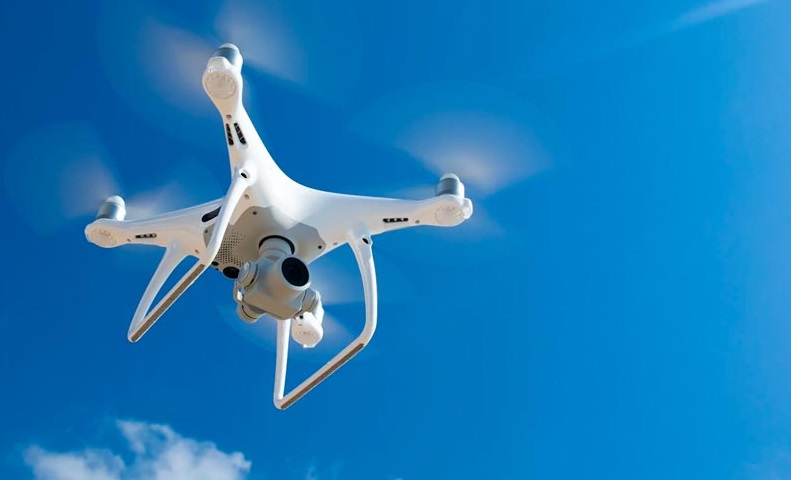6 Industries Feeling the Impact of Drones
Businesses that fail to incorporate new technologies are bound to fall behind the competition. As such, it's imperative to keep up with the trends happening in the industry.
Drones are by no means a new concept. These aerial vehicles have been around for a while, but it's clear that plenty of businesses still fail to recognize how impactful drone utilization is.

1. Construction
The construction industry requires asset monitoring to determine whether they are in good condition or not.
Environmental concerns are part of it, especially for structures that contain gas or oil, for example. A small misfortune could lead to a disaster.
Testing types range from non-destructive to destructive. Ideally, you want the former since it means no damage to the property, regardless of how small it might be. It's to ensure the asset's value is intact.
Drones enable such testing without directly involving real people. The method is efficient and safe. Instead of having somebody try their best to reach a dangerous area, send a drone and inspect it.
2. Agriculture
There are two notable areas where drones serve agricultural purposes. The first is surveying the area to determine whether the crops have been infected or suffer from other problems.
For large farmlands, it's hard to imagine a scenario when a handful of people are going around the area and checking everything manually. The approach is anything but efficient.
If you have doubts about whether a drone can replace a real person, consider the accessories tailor-made for monitoring and identifying crop-related issues that you can view via a drone and address later.
The second instance of drone usage would be an efficient way to apply fertilizers and pesticides. For the latter, it's particularly crucial to be as efficient as possible. You don't want to overspend because it damages not just the crops but also the environment.
For fertilizing, drones distribute fertilizers evenly, which adds to the overall efficiency and crop yield maximization.
3. Logistics
Logistics is another example of where drones shine. Consumers expect to get their goods delivered as fast as possible.
Drones offer alternatives to conventional delivery methods. That is not to say that drones will replace delivery trucks or ships that travel overseas. At least not yet, anyway. Drones are small and not powerful enough to carry a lot of goods or heavy goods.
Having said that, there are plenty of instances when a delivery requires speed. Instead of wasting time stuck in a traffic jam, a drone overcomes these obstacles and flies to its destination.
Similarly, some locations are hard to reach due to their terrain. Rocky areas, for example, often lack even the basic road infrastructure. Unless you plan to go there on foot, it makes much more sense to utilize a drone.
By making the most out of drones, companies can deliver goods more efficiently and reach new customers. It's beneficial to adopt the technology. Besides, drones will continue to improve in the future, becoming even more durable and faster, which should ensure an even better turnaround time for delivery companies.
4. Real Estate
Imagine working as a real estate agent and struggling to present a property in an attractive way because you cannot take pictures properly.
Or, here is a different scenario. You receive an offer to invest in property. You look through the photos and papers. Everything seems to be in order. However, the property is large, and there are no guarantees that it is in perfect condition.
Some difficult-to-reach locations would require additional inspection, but you cannot really do it in person. Hiring somebody is an option, but they might be reluctant to take the risk if the inspection is dangerous.
Whether it's taking photos or inspecting property conditions, drones present a lot of value to those involved in real estate.
5. Entertainment
The entertainment industry is constantly looking for ways to surprise its consumers. Traditional cameras struggle to produce results that some drones do.
Aerial photography and videography bring uniqueness. When done right, the method also captures scenes and their surroundings, ensuring clarity.
Drone usage is widespread across the entertainment industry, and it's hard to imagine it going away anytime soon.
6. Law Enforcement
Law enforcement often has a limited budget. If one wishes to scout an area using a helicopter, the method hardly seems efficient when you are on a tight budget.
Moreover, helicopters make a lot of noise. Catching criminals by surprise is hardly possible when they can hear law enforcement coming from a mile away.
Drones offer a solid alternative. They can navigate the area without making much noise and give the feed directly to the officers, who can react depending on the circumstances.
Finally, drones can serve as a deterrent. Areas that have regular drone surveillance are more likely to make criminals second-guess themselves about committing crimes when they know about being watched.
You should read it
- ★ Pack your drone for adventure in this Lowepro backpack that's 83% off
- ★ The world's first airport for unmanned aerial vehicles is about to start
- ★ Contemplating the performance of the drone model has a tremendous 'evasion index'
- ★ Unmanned aircraft help scientists monitor endangered sea turtles
- ★ 11 fighters will change the world military position in the near future